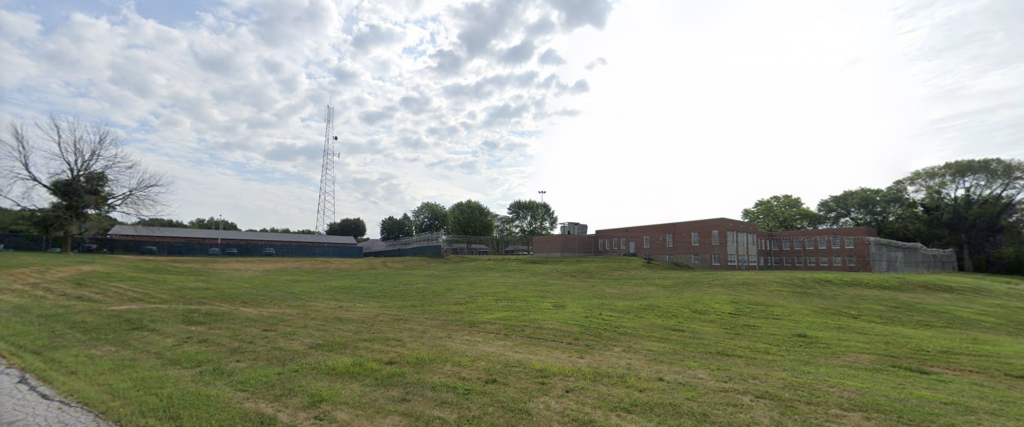-
Less than 3% of state’s prison population tested for Covid-19; virus accelerating behind bars
 The Illinois Department of Corrections (IDOC) has tested less than three percent of its prison population for coronavirus — a ratio that criminal justice reform group Restore Justice Illinois says is unacceptable, as Covid-19 cases in a northwest Illinois prison facility spike.
The Illinois Department of Corrections (IDOC) has tested less than three percent of its prison population for coronavirus — a ratio that criminal justice reform group Restore Justice Illinois says is unacceptable, as Covid-19 cases in a northwest Illinois prison facility spike. A new report from reform group Restore Justice Illinois blasts the Illinois Department of Corrections for testing less than three percent of Illinois’ prison population for Covid-19 at a time when East Moline Correctional Center is experiencing an outbreak. [Google Streetview]
A new report from reform group Restore Justice Illinois blasts the Illinois Department of Corrections for testing less than three percent of Illinois’ prison population for Covid-19 at a time when East Moline Correctional Center is experiencing an outbreak. [Google Streetview]
According to IDOC, 71 incarcerated men at the East Moline Correctional Center tested positive for Covid-19, along with five staff members. That number has steadily climbed since Gov. JB Pritzker’s administration first acknowledged the outbreak two weeks ago, when 26 inmates and three staff members had tested positive.
That rapid spread is a symptom of IDOC’s failure to formulate an adequate Covid-19 testing plan, according to a new report from Restore Justice published Tuesday. The group blasted IDOC for not reporting more data to the public, including how many prisoners are currently hospitalized with the virus and timely reports of Covid-19 deaths among incarcerated populations and prison staff.
“More than any other state, [Illinois has] embraced the most vigorous Covid-19 safety measures and protocols,” Restore Justice President Jobi Cates said Monday. “It baffles me how we could be in late June and still have only tested under three percent of prison population.”
Cates pointed to states like Michigan, Pennsylvania and Ohio, which report much more robust data to the public about Covid-19 in their state prisons.
“Families members and loved ones go to IDOC’s website…and it looks like a small, controlled situation,” Cates said of Covid-19’s spread in East Moline Correctional Center. “But they’re not reporting testing…It’s incredibly misleading.”
Cates said the paltry amount of testing also “robs” IDOC of the information needed to make strategic decisions.
Asked last week about Covid-19 testing in prisons, Pritzker said staff is being tested “on a regular basis.”
Pritzker spokeswoman Jordan Abudayyeh said IDOC has been following federal Centers for Disease Control and Prevention guidance for Covid-19 testing in congregate settings.
“DOC has also implemented a variety of health and safety measures to keep residents and workers healthy and safe, like limiting outside visitation, daily health screenings and temperature checks and ensuring appropriate PPE is available,” Abudayyeh said.
As of Monday, 320 incarcerated individuals tested positive for Covid-19 since the virus’ onset in March, according to IDOC’s website, and 192 prison staff members also tested positive.
Thirteen IDOC prisoners have died after contracting the virus — 12 at Stateville Correctional Center after a Covid-19 outbreak at the south suburban facility in April. The last updated figures for deaths within IDOC’s population are from June 9.
According to IDOC’s numbers, 190 Stateville prisoners have tested positive for Covid-19, along with 79 staff members. A handful are still recovering, while the rest have been labeled recovered.
There is not one IDOC facility where at least one inmate or staff member has not tested positive for Covid-19, but Stateville, East Moline, Sheridan Correctional Center in LaSalle County and Hill Correctional Center in Galesburg have seen outbreaks in the double digits.
Calls for monitoring virus spread
Restore Justice called for IDOC to monitor Covid-19 in prisons like the Illinois Department of Public Health monitors the virus’ spread in Illinois’ approximately 1,200 long-term care facilities, and demanded rapid expansion of testing in the state’s prison population, “tracking and reporting robust data” and “establishing clear and consistent protocols for testing, tracing, quarantine, and other safety measures.”
In long-term care facilities, for example, Restore Justice noted all residents are required to be screened every eight hours, and Covid-19 stats are due to state officials twice weekly.
The report also noted quarantine conditions within state prisons “seem to vary widely,” and said Restore Justice “has received reports that some facilities are still segregating the ill in solitary confinement facilities, rather than in healthcare facilities or under appropriate medical supervision.”
Prison staff has also called for more testing. According to AFSCME Council 31 spokesman Anders Lindall, AFSCME Local 46, which represents East Moline Correctional Center staff, requested more prolific Covid-19 testing after the first case was discovered in early June.
“The local union pushed for and got a plan to test all the inmates on that dorm — not just the symptomatic ones — since they had been exposed and we know that asymptomatic transmission is possible,” Lindall said.
Of the 93 additional inmates that were tested in that batch, 44 came back positive, he said.
Restore Justice has also criticized Pritzker’s administration’s early release program this month. The nearly 6,000 incarcerated people released from IDOC since March 1 were released were disproportionately white as compared with the state’s prison population at large. Additionally, the group said prisons were still too crowded even after thousands of prisoners were released.
Do you like this page?












